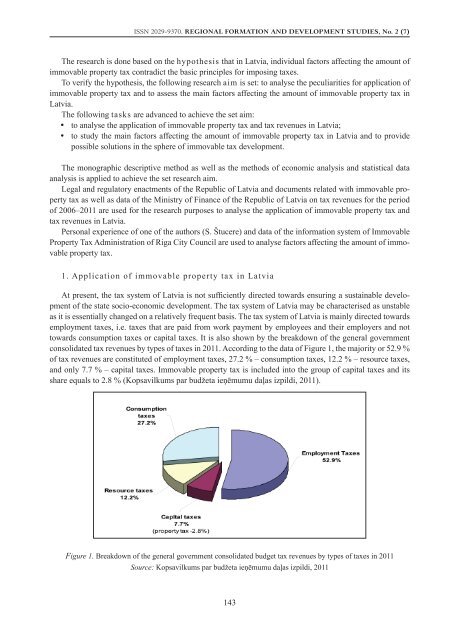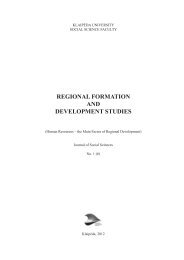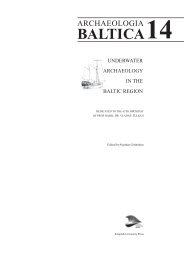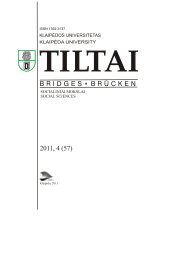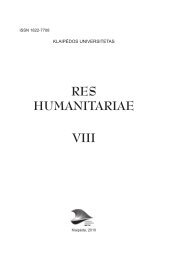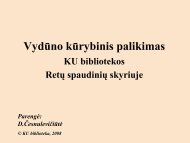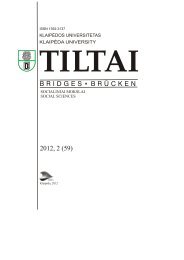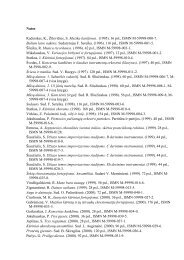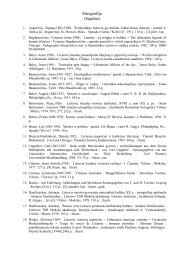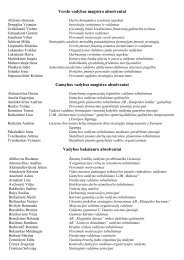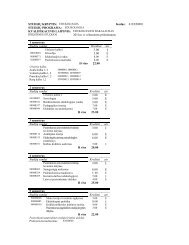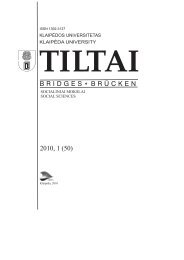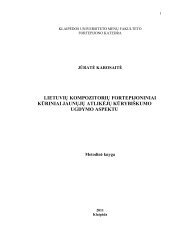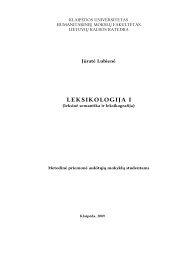regional formation and development studies - KlaipÄdos universitetas
regional formation and development studies - KlaipÄdos universitetas
regional formation and development studies - KlaipÄdos universitetas
You also want an ePaper? Increase the reach of your titles
YUMPU automatically turns print PDFs into web optimized ePapers that Google loves.
ISSN 2029-9370. Regional Formation <strong>and</strong> Development Studies, No. 2 (7)<br />
The research is done based on the hypothesis that in Latvia, individual factors affecting the amount of<br />
immovable property tax contradict the basic principles for imposing taxes.<br />
To verify the hypothesis, the following research aim is set: to analyse the peculiarities for application of<br />
immovable property tax <strong>and</strong> to assess the main factors affecting the amount of immovable property tax in<br />
Latvia.<br />
The following tasks are advanced to achieve the set aim:<br />
• y to analyse the application of immovable property tax <strong>and</strong> tax revenues in Latvia;<br />
• y to study the main factors affecting the amount of immovable property tax in Latvia <strong>and</strong> to provide<br />
possible solutions in the sphere of immovable tax <strong>development</strong>.<br />
The monographic descriptive method as well as the methods of economic analysis <strong>and</strong> statistical data<br />
analysis is applied to achieve the set research aim.<br />
Legal <strong>and</strong> regulatory enactments of the Republic of Latvia <strong>and</strong> documents related with immovable property<br />
tax as well as data of the Ministry of Finance of the Republic of Latvia on tax revenues for the period<br />
of 2006–2011 are used for the research purposes to analyse the application of immovable property tax <strong>and</strong><br />
tax revenues in Latvia.<br />
Personal experience of one of the authors (S. Štucere) <strong>and</strong> data of the in<strong>formation</strong> system of Immovable<br />
Property Tax Administration of Riga City Council are used to analyse factors affecting the amount of immovable<br />
property tax.<br />
1. Application of immovable property tax in Latvia<br />
At present, the tax system of Latvia is not sufficiently directed towards ensuring a sustainable <strong>development</strong><br />
of the state socio-economic <strong>development</strong>. The tax system of Latvia may be characterised as unstable<br />
as it is essentially changed on a relatively frequent basis. The tax system of Latvia is mainly directed towards<br />
employment taxes, i.e. taxes that are paid from work payment by employees <strong>and</strong> their employers <strong>and</strong> not<br />
towards consumption taxes or capital taxes. It is also shown by the breakdown of the general government<br />
consolidated tax revenues by types of taxes in 2011. According to the data of Figure 1, the majority or 52.9 %<br />
of tax revenues are constituted of employment taxes, 27.2 % – consumption taxes, 12.2 % – resource taxes,<br />
<strong>and</strong> only 7.7 % – capital taxes. Immovable property tax is included into the group of capital taxes <strong>and</strong> its<br />
share equals to 2.8 % (Kopsavilkums par budžeta ieņēmumu daļas izpildi, 2011).<br />
Figure 1. Breakdown of the general government consolidated budget tax revenues by types of taxes in 2011<br />
Source: Kopsavilkums par budžeta ieņēmumu daļas izpildi, 2011<br />
143


